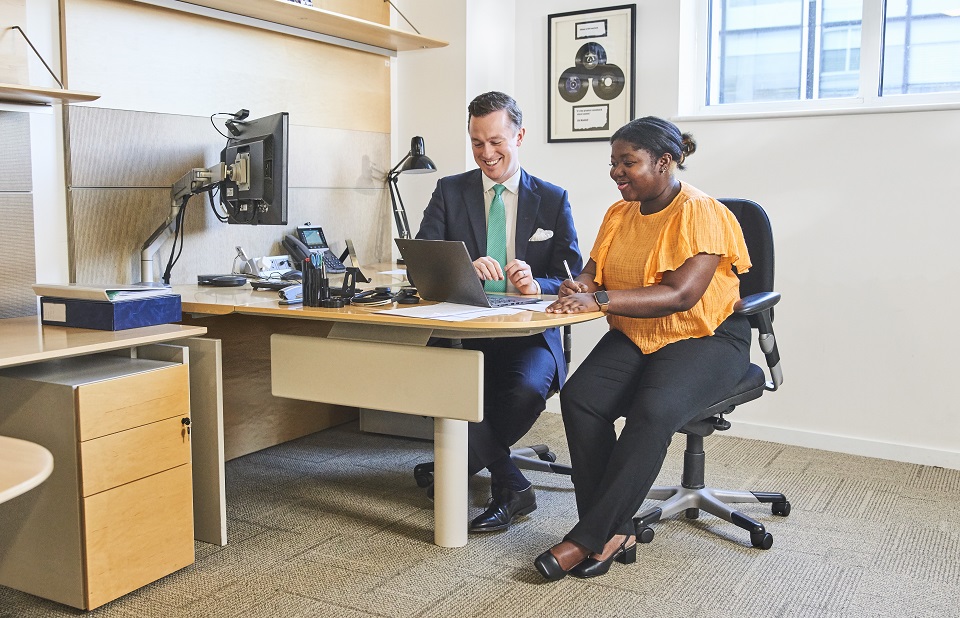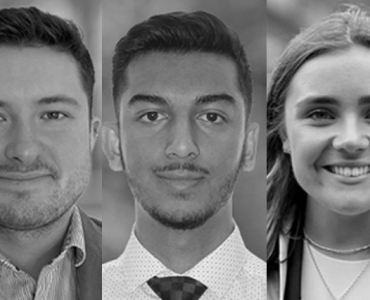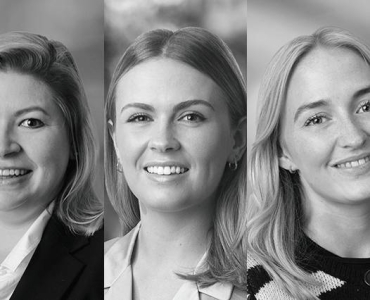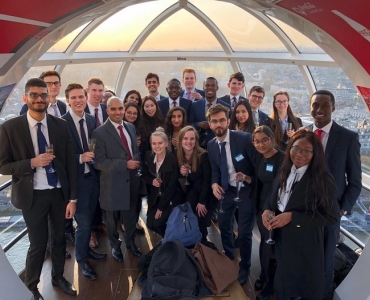
October 2022: London associate James Turner and trainee Iman Adebowale share their top insights into this important relationship, and how future trainees can make the most of their time working closely with an experienced lawyer.
You'll share an office
James Turner: Supervisors have a dedicated second desk in their office for trainees. So, from your first day at the Firm, you're literally working side by side.
Iman Adebowale: Being in such proximity, you get to join or listen in on every client call or meeting. I learn so much from just being in the same room as my supervisor.
Every seat is different
IA: Although you might know a bit more about say, the Firm's internal IT systems, after your first seat, remember that every seat is a whole new area of the law to learn about. The team will have different processes, the documents you're working on will be different...
JT: I've worked with 16 different intakes of trainees over the years, and no matter whether it's their first or fourth seat, they're essentially starting from square one. As a team, we're fully prepared for this, and set up both to integrate trainees from the start and to make sure they are supported to do the work too.
Trainees all get there in the end
JT: From what I've seen, the biggest difference between trainees is how they learn, what their development needs are, where they shine and where they're less strong. But that's why we have a two-year training contract—that's enough time for everyone to acquire the knowledge and skills they will need as an associate.
IA: There's definitely a huge learning curve as a trainee. As long as you understand that, you can accept that sometimes it feels like a lot but there's always support available. As trainees, we're here to learn, and we're learning every day.

You're also part of a bigger team
IA: It's not just you and your supervisor, there's also other associates and other partners working in the same team. You actually work very closely with the more junior associates.
JT: Supervisors are usually partners or senior associates, so for many day-to-day tasks, trainees work with less senior members of the team. We might also be working across multiple offices, or practices.
...and a global Firm, with shared values
JT: What sets White & Case apart from other global firms is our values; how we deliver for our clients. That's the kind of thing that you learn best by seeing it in action—how we live our values of being pioneering, united and human.
IA: Being in the office together and being able to work seamlessly in a team with people from other White & Case offices really highlights how truly global and united the Firm is. On one deal I had the opportunity to work with local counsel in nine different countries!
You'll learn about different working styles
IA: Of course, you want to get along with your supervisor, but you're not necessarily trying to be their friend (although that does happen, happily!). Working with people who approach things differently, who manage things differently, is a good experience too.
JT: Over the course of your professional life, you have to interact with all sorts of personalities and learn about different ways of doing things. Learning how to adapt, while always being professional, starts with the experience of working for different supervisors.
Your supervisor can help you achieve your career ambitions
JT: Supervisors are all former trainees, we know what it's like to be starting out and trying to understand all the different ways that you can practise law. Trainees should absolutely look to their supervisors for advice and introductions to other people.
IA: Building your own network of professional contacts starts straight away as a trainee, but your supervisor is there to provide advice, to help you make connections and to share all that they've learnt in their own career.




